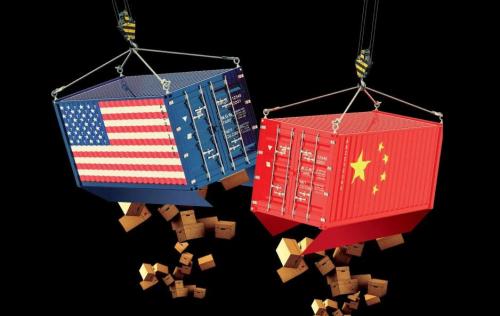Economic war? China devalues its money and suspends agricultural purchases from the United States
A weaker yuan means that Chinese products denominated in dollars are cheaper, which will help to counteract the negative effect of the new US duties on their competitiveness.
- Opinión

China announced this Tuesday the suspension of the purchase of agricultural goods from the United States, as a response to the recent measure of Washington of a 10% increase in customs on Chinese exports, valued at 300 billion dollars, one day after announcing the devaluation of their currency, the yuan.
The Chinese Ministry of Trade considered the rise in tariffs, with effect from next September 1, as a “grave violation of the meeting between heads of State of China and the United States” and has not ruled out taxing imports of agricultural goods from the United States recently acquired after August 3.
This announcement is a further step in the increasing tensions in the trade war that both countries have engaged in since last year, and which has already entered a new chapter since, last week, the US President, Donald Trump, announced the above-mentioned customs measures in the face of a lack of progress in trade negotiations.
Devaluing the yuan
In what various analysts considered a response to the new taxes decided by Trump, the Chinese yuan on Monday broke the psychological barrier of seven units for each dollar, something that had not happened since April 2008. A weaker yuan means that Chinese products denominated in dollars are cheaper, which will help to counteract the negative effect of the new US duties on their competitiveness.
The response to this fall in the value of the yuan was nearly immediate, and that same Monday the Treasury Department of the United States called China a “currency manipulator” and threatened to undertake reprisals to put an end to the unjust trade advantages, in the framework of the International Monetary Fund.
The Chinese measure caused an uproar in international trade, since it makes the products of the country more competitive on the world level. The measure is a response to the radicalisation of the trade war on the part of the US regime of Donald Trump, who unilaterally raised the rates on imports of Chinese products.
There is a second motive behind the Beijing initiative: to protect themselves from a possible slowdown of the world economy in 2020. China, – since 2004 – had already embraced measures of an even broader scope, sanctified by the Congress of the Communist Party in 2007, notes the analyst Gilberto Maringoni.
At that time, it was a question of moving the dynamic centre of the economy from the exporting sector to the internal market. A further step was the incorporation of 800 million inhabitants to consumption, as from 1992. China raised, in real terms, the wages of workers (in some cases they were tripled) in the space of a decade.
With an internal market of a billion persons, the country lessened their rates of growth, but encountered greater solidity to face the crisis of 2008. The present devaluation–without putting pressure on internal wages – results in balancing the internal and external sectors for the trade war declared by the United States, and the eventual global inclemency, he added.
China solemnly throws the canons of the current economy into the garbage bin. First of all, the State intervenes strongly in the economy. In second place, it rejects the notion that the exchange rate should float freely, according to the mood of the market. A sovereign currency exchange rate is a controlled rate, Maringoni points out.
06/08/2019
(Translated for ALAI by Jordan Bishop)
–Isabell Arria is a Chilean journalist resident in Europe and an analyst associated with the Centro Latinoamerico de Análysis Estratégico (CLAE, estrategia.la)
Del mismo autor
- Duelo de salón, juego de ajedrez entre Biden y Putin en la cumbre de Ginebra 17/06/2021
- TLC Mercosur-UE: objeciones de Francia y reparos de Argentina 22/09/2020
- Europa, entre el temor de la ola verde y el del rebrote de pandemia, abre parcialmente las fronteras 30/06/2020
- En Francia reverdece la izquierda en un nuevo revés para Emmanuel Macron 29/06/2020
- Trump le quita el financiamiento a la OMS y trata de endosarle su fracaso y negligencia 30/05/2020
- Blair y una campaña sionista acabaron con el líder laborista Jeremy Corbyn 21/04/2020
- Desde el 1 de febrero, el Reino Unido fuera de la Unión Europea 30/01/2020
- La cumbre sobre Cambio Climático se enfrenta al nuevo negacionismo 03/12/2019
- Elecciones en el Reino Unido: el Brexit conservador vs el cambio radical laborista 28/11/2019
- Exhuman los restos del genocida Francisco Franco tras 44 años ¿de democracia? 25/10/2019
China-EEUU
- Umberto Mazzei 10/06/2021
- Umberto Mazzei 09/06/2021
- Michael Klare 08/04/2021
- Matthew Ehret 24/03/2021
- Lejeune Mirhan 16/02/2021








